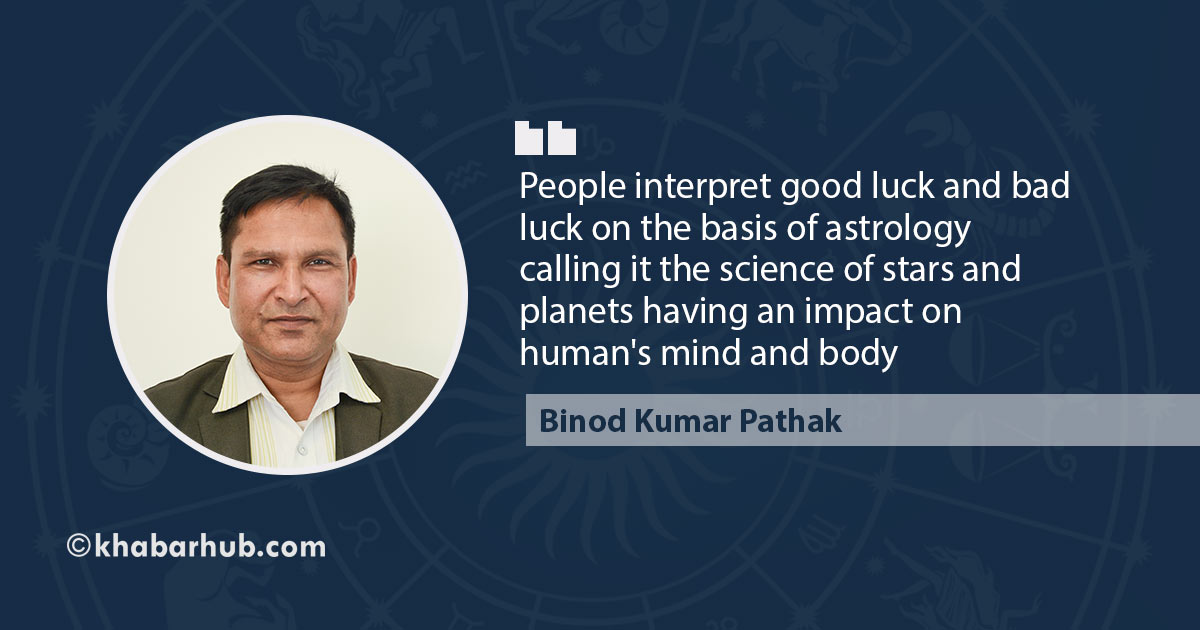Belief in magic, omens, good luck, bad luck, ghosts, and spirit is interpreted differently in different cultures across the world. Some say ghosts or spirits exist for real and prove it by placing the evidences while others reject the idea dubbing it as superstition.
Similarly, people interpret good luck and bad luck on the basis of astrology calling it the science of stars and planets having an impact on human’s mind and body while others again reject the same as superstition. Most of the western people believe that Friday the 13th is the unlucky day and regard it as foreboding. Chinese consider number 4 as an omen for death and Japanese think 9 is the omen for death.
Even today we hear though occasionally cases of human sacrifice for acquiring some kind of hidden and occult powers or simply for achieving the worldly goals and fulfillment of desires (concerning with power and money).
There is no rational explanation for such thought and actions guided by this belief which is superstitious in nature. Can one call it religion? Of course not. What these stupid actions and thoughts have to do it with religion? Similarly, human and animal sacrifices across the cultures in one way or the other has been carried on as a sign of religion.
Even today we hear though occasionally cases of human sacrifice for acquiring some kind of hidden and occult powers or simply for achieving the worldly goals and fulfillment of desires (concerning with power and money). Animal sacrifices we still notice in Islam and Hinduism though nothing to do with major tenets of religion but believers perpetuate the practice of animal sacrifice as essential parts of their religion supported by minor priests and Mullas quoting the scriptures as they want.
The body of 10-year-old Jivan Kohar was recovered on July 24, 2015, on the outskirts of Kudiya village in southwest Nepal. A man named Kodai Harijan admitted having committed the gruesome crime of killing Jivan Kohar with the help of his relatives after consulting the village priest who instigated him to make a human sacrifice.
Act of superstition propelled by irrational belief is being encouraged in a name of religion by some deviants who pursue religion for political, economic and other psychopathic reasons.
In rural areas where the scientific rational approach of treating the diseases are not heard off due to the backwardness of the region, priests command the respect for explaining the causes of human sufferings and other maladies of life such as disease and poverty. These priests, Jhakari and Tantrikas are believed to have possessed magical or spiritual powers to cure the sick.
Not only that they are also believed to have the power to make or mar the destiny of any being by dint of their incomprehensible antics, mutterings, and commands. According to testimony given to police, Harijan and his relatives found the child playing with friends in the village and lured him away by giving him a pack of biscuits and promising him 50 rupees (49 cents).
The boy was taken to a temple on the outskirts of the village, where they performed a religious ritual in which he was taken to a field nearby for a human sacrifice. When police found the boy’s dead body, his head was almost severed. When a religion should be the medium of self-transformation for inner spiritual growth with the rise in human consciousness, it has been deviated towards fulfilling human’s materialistic desires and other fancy ideas arising from human’s deranged thoughts.
Local priests with their deceptive tricks claim to have knowledge of religion which they employ for individual’s wish fulfillment. Neither these priests grow to understand the real import of religion nor do help others grow spiritually.
Act of superstition propelled by irrational belief is being encouraged in a name of religion by some deviants who pursue religion for political, economic and other psychopathic reasons. A report came on May 31, 2019, from Dhalkebar, Mithila Municipality-6, Dhanusha about a two-and-a-half-year-old Aryan Sah slain in a freakish ritual as ‘human sacrifice’ by a shaman, Shatrughan Mahato, to propitiate a female deity.
Similarly, one Sarika Ingole, scoured every corner of her village in the western Indian state of Maharashtra to find her six-year-old son in January 2017 only to find him in the form of a mutilated corpse. An investigation revealed that a Tantrik had kidnapped the boy for sacrificing him as part of his so-called religious ritual to gain more magical power.
On February 24, 2019, Pope Francis compared the sexual abuse of children to human sacrifice as he addressed the Catholic Church’s top bishops at the end of a landmark summit to tackle pedophilia. “Our work has made us realize once again that the gravity of the scourge of the sexual abuse of minors is, and historically has been, a widespread phenomenon in all cultures and societies,” he said.
Calling for an “all-out battle” against a crime he called abominable, the pontiff said the crime reminded him of “the cruel religious practice, once widespread in certain cultures, of sacrificing human beings – frequently children – in pagan rites.”
We see how young Muslim girls are married off to old men for a few weeks or few days. It is called Nikah mut’ah (nikāḥ al-mutʿah, literally means “pleasure marriage”). This practice continues as being the essential part of religion. It is nothing but a paid prostitution. Nikah halala (or tahleel marriage) is a practice in which a woman, after being divorced (by triple talaq) marries another man, consummates the marriage, and gets divorced again in order to remarry her former husband.
In both the practices sanctified as being a religious ritual, women of all ages are exploited and shamed. These are a few examples of how religion has created a pathological condition in our society all across the world.
Religion satiates the long-seated urge within human beings to create a father figure as God – the father only to revive the ancient relationship with the natural father.
It seems for most of the people religion is still playing at a primitive level in the realm of superstition. This is probably the reason Herbert Spencer and Edward Tylor (both of them sociologists) focused on the religious behavior of primitives. Spencer writes that such people make reasonable, though weak, inferences with regard to natural phenomena.
Sigmund Freud, the founder of psychoanalysis, a clinical method for treating psychopathology through dialogue between a patient and a psychoanalyst, considers religion collective neurosis the way it is practiced generating pathological conditions among humans and make them superstitious devoid of any intelligence and positive emotions.
Religion satiates the long-seated urge within human beings to create a father figure as God – the father only to revive the ancient relationship with the natural father. Why is this so? Freud explains: All adult humans fear the power of nature/destiny. Therefore, they revive the early childhood experience of the almighty father by seeing a father in God and take refuge in religion.
This natural father, endowed with unlimited power, is sanctified later and transformed into God (or Heavenly Father). This regression of the adult person to the childhood experience by seeing a father in God — a creation of human imagination is all neurotic and pathological.
(Views expressed in this article are the author’s own and do not necessarily reflect Khabarhub’s editorial stance).









Comment